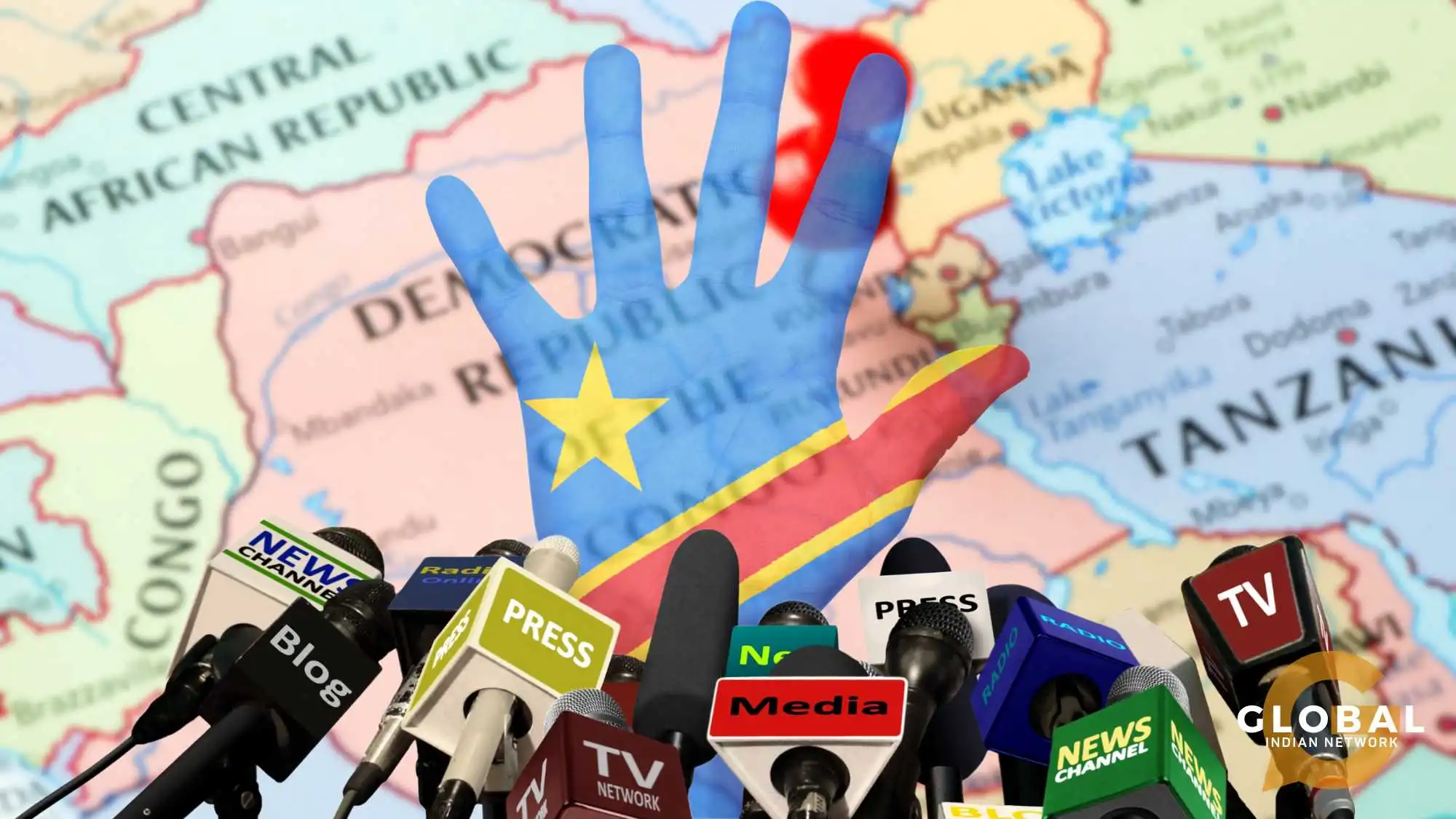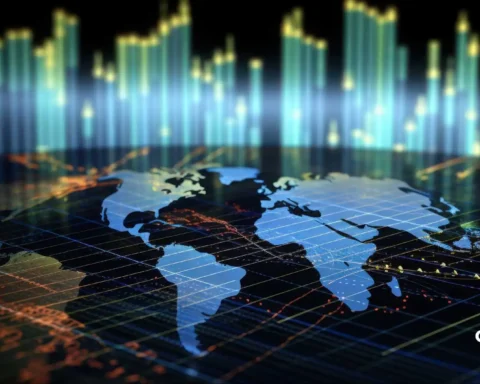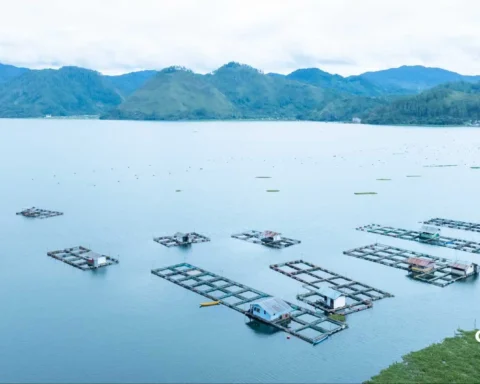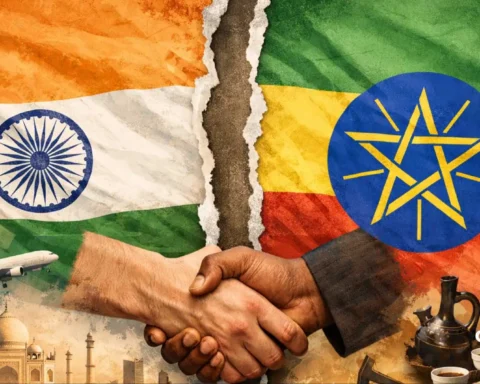The Democratic Republic of Congo is rich in minerals, has a vibrant rainforest, the second longest river in Africa, a national park, and a UNESCO heritage site. It is also proud of its music, dance, art, sculpture, cultural diversity, beautiful landscapes, and traditional medicine. However, humanitarian issues and crises have been preventing progress.
In recent years, the country has experienced significant press freedom violations, with journalists facing threats, intimidation, and violence. Journaliste en Danger (JED) has documented numerous instances of press oppression, highlighting the precarious position of media professionals.
Despite challenges, emerging voices advocate for journalistic integrity and accountability. The DRC’s media landscape is reshaping information dissemination and consumption, revealing the struggles journalists face and the resilience of those committed to promoting diverse perspectives in a nation rich in culture and history.
Congo, Democratic Republic of the | Culture, Facts & Travel | – CountryReports
Table of Contents
Media Composition
As of early 2020, the DRC had 540 newspapers, 177 television channels, 61 radio stations, and numerous online news platforms. Kinshasa, the capital, houses 80% of Congolese media outlets. The media landscape is predominantly private, influenced by political affiliations and ownership biases, with only 15 newspapers regularly appearing.
x.com/GeoPoll/status/1810962943195955430
Print Media
Over 200 print media newspapers have irregular publication schedules, but only 64 consistently publish. Public perception of print media is mixed, with concerns about unverified information and journalistic integrity. Reports suggest many journalists are paid to publish articles without proper verification, undermining the press’s credibility.
Broadcast Media
Radio Okapi, a prominent Congolese station, is a crucial source of information for many citizens. It broadcasts in multiple languages and provides impartial coverage of political processes. However, most broadcast outlets are subject to political control, limiting their freedom of reporting.
DR Congo media guide – BBC News
Regulatory Environment
The DRC’s media regulatory framework has been modified to promote press freedom, with Article 23 of the Constitution ensuring freedom of expression and Article 24 focusing on information rights. However, recent legislation, Ordinance Law 23/009, imposes severe penalties for false information, raising concerns about potential suppression of dissent.
The Haiti Autorité des Médias (HAM) aims to promote responsible media practices but faces challenges in enforcement due to political pressures and limited resources. Journalists like Journalistaliste en Danger (JED) monitor press freedom violations, reporting 124 cases in 2022.

Challenges Facing Journalists
The DRC’s journalists face numerous challenges, including political interference, safety concerns, and economic pressures. Many media outlets are aligned with political parties, leading to biased reporting. The volatile security situation in eastern DRC, where military rule has increased restrictions on reporting, exacerbates these risks. Additionally, the economic instability in the DRC forces journalists to prioritize financial gain over ethical reporting, with poor working conditions and low salaries contributing to a compromised media environment where sensationalism often overrides factual reporting.
Political interference, economic pressures, and safety concerns are common issues journalists face in the Democratic Republic of Congo (DRC). Political actors control narratives, leading to biased reporting and self-censorship. Journalists work under precarious financial conditions and are vulnerable to corruption and unethical practices. Low salaries can encourage accepting bribes or publishing favorable articles. Additionally, threats, harassment, and violence from state actors and armed groups undermine their ability to report freely and ethically.
Political Interference Impact Journalism
Political interference in the Democratic Republic of Congo significantly affects journalism, shaping the media landscape and affecting reporting quality and integrity. This interference, involving ownership structures, government control, and economic pressures, creates a challenging environment for journalists.
Democratic Republic of the Congo: Freedom in the World 2022 Country Report | Freedom House
Ownership and Political Affiliation
The DRC’s media outlets are often owned by political figures or parties, leading to biased reporting and “propaganda presses.” These outlets prioritize the defense of their owners’ interests and demonize opponents, often exacerbated during election periods. This trend has been observed to exacerbate political tensions rather than promote informed public discourse.
State Control and Censorship
State-owned media like the Radio-Télévision Nationale Congolaise (RTNC) are vulnerable to political intervention, as they often reflect government narratives and promote the ruling party’s agenda. The government controls public media, limiting their ability to report independently or critically on state affairs. Censorship, including threats, harassment, and violence, is common, limiting journalists’ ability to report independently.
The New Humanitarian | Stop forcing Congolese journalists to pick sides in the M23 conflict
Economic Pressures
The DRC’s economic situation exacerbates journalistic integrity, with many journalists receiving low monthly salaries of $15 to $200. This leads to unethical practices like accepting bribes to publish favorable articles or suppressing negative information about powerful individuals or entities, which undermines media credibility and fosters a culture of corruption within journalism.
Impact on Reporting Quality
Political interference and economic pressures in the DRC have significantly impacted journalism quality. Investigative journalism is scarce due to safety concerns and a lack of resources. This leads to biased and inaccurate reporting, diminishing public trust in the media and reinforcing societal and political divisions.
Consequences for Democracy
Political interference in journalism significantly impacts democracy in the DRC. When media outlets act as political agenda tools, public discourse suffers, leading to political polarization and social unrest. This manipulation hinders citizens’ engagement with democratic processes and undermines the importance of informed citizenry.
Media Freedoms Should Not Be a Target in DR Congo | Human Rights Watch
Measures Taken to Improve Media Ethics
The Democratic Republic of Congo is implementing measures to improve media ethics, protect journalists, and promote responsible reporting. Still, these efforts face political interference, economic instability, and safety concerns for journalists.
Legislative Reforms
The DRC introduced Ordinance Law 23/009 in March 2023 to strengthen media ethics and protect freedom of expression. The law emphasizes the right to information and safeguards freedom of expression but has been criticized for imposing harsh penalties for false information, particularly targeting public figures. Critics argue these reforms may empower authorities to suppress dissent rather than protect journalistic integrity.
15-Year-Old Peaceful Protester Beaten and Detained
Regulatory Bodies
The Haiti Autorité des Médias (HAM) and the High Council for Broadcasting and Communication (CSAC) are organizations in the Philippines that promote responsible media practices and prevent hate speech and violence. Despite facing challenges in asserting authority, both organizations play a crucial role in advocating ethical journalism and regulating media outlets.
Training and Capacity Building
Journalists like Journalists en Danger (JED) and Journalists for Human Rights (JHR) are providing training on ethical reporting practices to journalists. These initiatives aim to improve their understanding of their professional obligations, particularly during politically sensitive periods like elections. JED organizes briefings and seminars to enhance accuracy and fairness in reporting.
2024 Reporting Safely in Crisis Zones Course for Freelance Journalists
Ethical Guidelines and Codes of Conduct
The new media law prohibits journalists from accepting bribes or engaging in advertorial practices that blur the lines between advertising and news content. This ensures their integrity and prioritizes their audience’s interests over those of advertisers or political entities. This is a crucial step in establishing ethical guidelines within media organizations.
Advocacy for Press Freedom
International organizations, including Reporters Without Borders (RSF), advocate for press freedom and ethical journalism in the DRC. They call for clearer definitions of press independence, source protection, and accountability mechanisms within media organizations. These efforts are crucial in raising awareness about the role of ethical journalism in promoting democracy and good governance.
Democratic Republic of Congo in Crisis | Human Rights Watch
Opportunities for Improvement
The DRC can improve its media landscape through training and education, increased civil society engagement, and international support. Institutions like IFASIC offer training for aspiring journalists, fostering a more professional media workforce. Civil society organizations can advocate for better legal protections and press freedom reforms. Collaborations with international organizations can provide resources and training for local journalists, promoting best practices in journalism.
YOU MIGHT BE INTERESTED IN: From Censorship to Connectivity: Understanding Africa’s Media Evolution and Press Freedom
Conclusion
The media landscape in the Democratic Republic of Congo is both resilient and challenging. With over 500 newspapers and radio stations, the quality of journalism often suffers due to political interference, financial instability, and a lack of professional training. Journalists often operate under duress, facing threats, censorship, and the “coupage” phenomenon, where they accept payments to influence their reporting.
Emerging digital platforms offer new opportunities for expression and information dissemination in the Democratic Republic of Congo. Independent voices and community-focused media initiatives provide diverse reporting. Reforming legal frameworks surrounding freedom of expression could improve journalist conditions. Fostering a media environment prioritizing integrity and accountability is crucial for empowering the Congolese people and supporting democratic processes.
The word ‘democracy’ has no meaning if citizens are not part of the developmental progress. The elephant in the room is the suppression of the media, whose right it is to inform the public. It is also a fundamental right of the citizen to know matters related to the nation and its well-being. With one whip and two groups considered ‘opponents,’ the ruling class is managing to extend their terms. This is a violation of humanitarian aspects.
The least the Congolese government can do is ‘agree to disagree’. Conversations, one at a time, over time, would take the nation to its potential, which it is worthy of.
“Let’s compete like mad on stories, but not on safety.”
– David Rohde, Executive Board co-chair, A Culture of Safety Alliance (ACOS)










